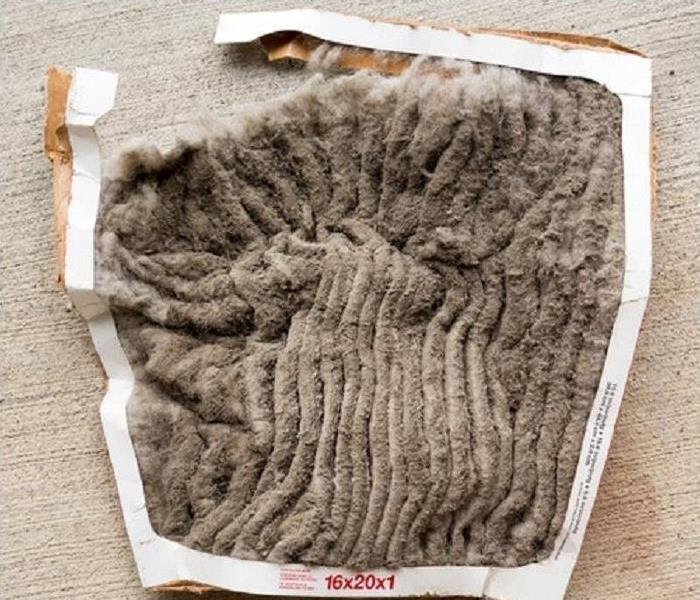HVAC Fire Hazards and Prevention
5/15/2017 (Permalink)
The Top HVAC Fire Hazards
HVAC systems are usually in a back room of the basement, outside behind the house, or in the attic – three places that are easy for homeowners to forget about.
Regardless of the season, HVAC fire hazards are present at any time of the year. Fortunately, many of these risks are preventable.
The Top HVAC Fire Hazards:
- HVAC parts are old, corroded, or broken:This problem often stems from an HVAC unit that is not regularly serviced. Problems with essential parts can lead to decreased efficiency and also lead to potential fire hazards.
- Items are stored too close to the HVAC unit:The HVAC unit itself produces a considerable amount of heat. Storing combustible items such as boxes, paper, motor oil, and chemicals too close to the unit creates a high-risk environment for a fire.
- Problems with connections or gas pressure:Problems with connections in a gas furnace can lead to toxic gas being released into the home, leading to both health and fire hazards.
- The HVAC unit has an electrical problem: Whether the unit has a loose cord connection, a frayed cord, an old cord that overheats, or another issue, electrical problems with HVAC units can easily spark furnace fires.
- A fuel line is leaking: This can be a harder problem to spot since many fuel lines are located inside or behind the unit. Yearly inspections can help catch old, at-risk fuel lines before they start leaking and posing a major fire hazard.
- Improper installation: When an HVAC unit is installed improperly, it can lead to many problems such as reduced air flow and efficiently, and increased costs. Improper installation can also cause serious problems such as carbon monoxide poisoning and fire hazards.
If you notice the smell of gas in the basement, evacuate the home and call your service technician immediately.
What You Can Do to Prevent HVAC Fires
Taking steps to prevent HVAC fires is the best way to avoid an emergency situation. In addition, these steps can save you a lot of long-term hassle and cost.
Tips for Preventing HVAC Fires:
- Schedule HVAC maintenance at least once a year.Not only is a yearly inspection a good way to ensure that every part is in serviceable condition, you can maintain optimal efficiency for energy savings.
- Don’t attempt DIY HVAC maintenance. Always hire a professional, certified technician to perform any repairs or tune-ups on your HVAC unit. DIY repairs can lead to accidental problems such as carbon monoxide poisoning or increased risk of fire hazards.
- Ensure that the area is properly ventilated.HVAC systems produce carbon monoxide, a toxic, invisible, odorless gas. Without proper ventilation, this gas can collect in the home and become extremely hazardous to occupants.
- Be aware of what you store near your HVAC unit.It is advised to keep all items at least 3 feet away from the unit. Much like portable heaters and other appliances, HVAC units can get extremely hot and cause flammable items to combust. Storing items too close to heating equipment is one of the primary causes of home fires.
- Replace the filters on your HVAC at least twice a year, if applicable.Set a routine that is easy to remember, such as once during the spring and again during the fall. Not only will a filter improve the air quality in your home, it will help ensure proper airflow and reduce overheating.
- If you have an outdoor HVAC unit and keep it covered during certain seasons, make sure to remove the cover prior to the first use of the season. An obstructed airflow can cause overheating and pose a fire hazard.
- Install a carbon monoxide detector near the HVAC unit.Evacuate the home and call your HVAC technician if the alarm goes off.
Now that you know the top HVAC fire hazards and how to prevent them, you can take steps to keep your family safe year-round.





 24/7 Emergency Service
24/7 Emergency Service